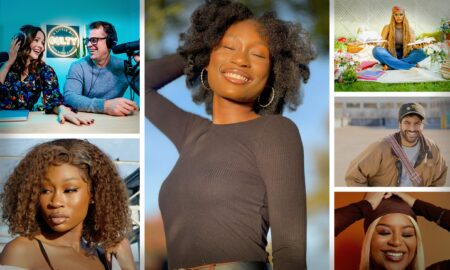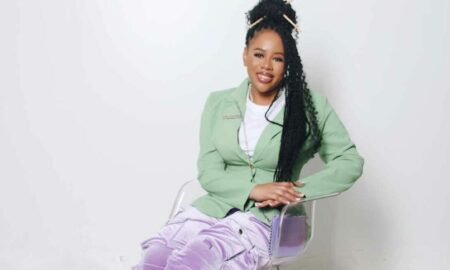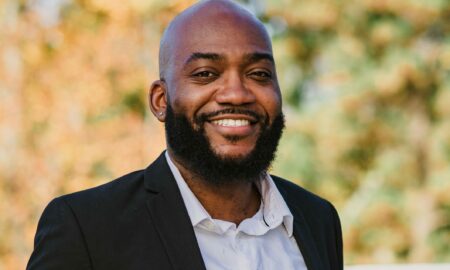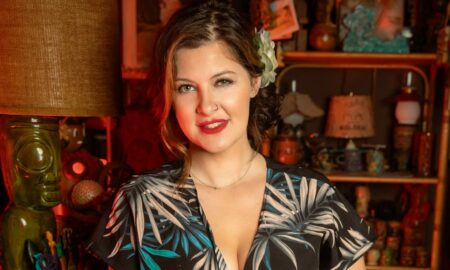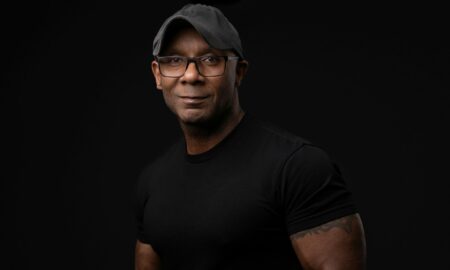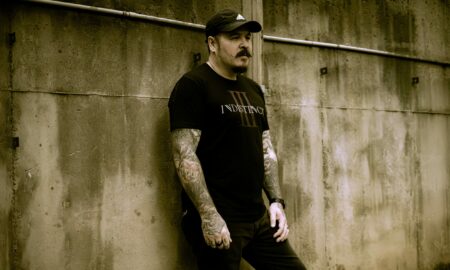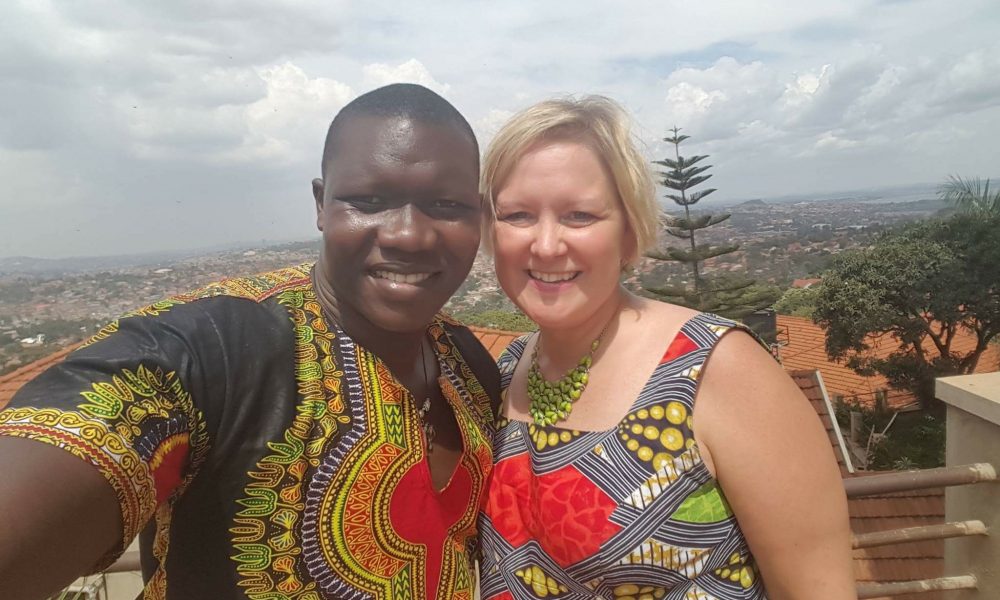

Today we’d like to introduce you to Monica Swahn.
Thanks for sharing your story with us Monica. So, let’s start at the beginning and we can move on from there.
I’m a professor of global health at Georgia State University. Through my work in Uganda for about 8 years, I have sought to find ways to improve the lives of the youth in the slums of Kampala by addressing alcohol and harm. The launch of my business, called Tugende Design together with my partner Charles Chandia, was in response to me wanting to do more, to help these impoverished communities, and give back in a more concrete way. Particularly, I wanted to empower the hard-working and talented women who provide for their families and who often want nothing more than school fees for their children so that they can get a basic education and lead better lives.
I have talked to many of these hard working women about their needs and wishes and wondered how I could give back. They appreciate my community involvement and research projects, but it takes a long time for research findings to be implemented and to make a difference. So I wanted something faster, more concrete and some very practical way to empower these women.
After meeting with many of these amazing women and visiting the local craft markets over the years, I had come to appreciate their talent in making jewelry and bags from paper beads. We have now developed great relationships with five groups of women that have been hired to make jewelry for Tugende Design. Each of these groups have been tasked with making different designs for us and have between 10 and 30 women each to make the beautiful beads. It is amazing to see them work with few tools and resources. It is also daunting to realize how labor intense it is to make these paper beads and jewelry. Some of our intricate necklaces require three to four days each to complete.
Using recycled paper and scraps from magazines and print shops, they carefully cut long strips of paper and roll them tightly to make beads. These are then varnished for durability and strung to make gorgeous necklaces. When talking to them about their sales, it was clear that the market place in Uganda is limited and that they struggle to make ends meet despite their talent. It is a country that has not yet blossomed in terms of tourism so their market place is smaller. But, I thought, selling this jewelry, bags and crafts in the U.S. would make much more sense. So while the idea was flickering for a few years, I finally registered the business in 2016. But, it wasn’t until this past spring and summer, we went full force ahead. And it has been an exciting journey. This past summer it all came together, we had a small Etsy shop in place, we sold our products at several fairs and we had also launched our website.
Before I officially launched the business, I supported a small pig farm in Jinja, Uganda and other small charity projects in the country. But it is my love for crafts, bead making and sewing and my passion for global health that really made this social enterprise business initiative come together. I love crafts, design, color schemes, and have always had a craft room to sew, make holiday wreaths, collages, Halloween costumes for my three sons and even reupholstered furniture. I think this is an important left and right brain balance piece for me as I often work with statistics and abstract numbers. There is creativity in doing research but I have found that the more I write about statistics, the more my brain needs to look at colors and touch fabrics and different textures. So, since starting Tugende Design, I have been immersed in colors, textures and creative thinking which has been so much fun. But, what fuels me every day is the need to give back to these ladies. And, I promised them that I will work hard on this every day to make it successful. We use fair trade practices, recycled materials and hope that our business will result in sustainable income for these women in the long term, which will provide them with independence to support their families and send their children to school. It will also allow us to support other community projects to improve sanitation and address other health concerns in these communities that have a high number of orphans and single mothers as a result of the HIV/AIDS epidemic in sub-Saharan Africa.
The word Tugende means “let’s go” in Luganda, one of the local languages in Uganda. I love this word and it was one of the first that I learned. It also has similar sounding counterparts in other east African languages. It is a word of action, it’s inspiring and it encourages us to move forward.
I have projects all over the world, but have been most proud and inspired by my work in Uganda. Despite the hardships that so many people face there, they are among the most welcoming people I have ever met. The friendliness and sense of community is profound and I have found myself drawn to the country to do more and bigger projects and to also call it home. I have an apartment in Kampala with my partner to make it easier to travel back and forth from Atlanta, which is our primary home.
I have a very strong connection to Uganda both personally and professionally. My partner Charles is from Uganda. My three sons have visited and I have very close friends and colleagues there. I have really come to love the beautiful country in so many ways. But, I have also received a Fulbright Scholarship for three years to work with their Flagship University called Makerere University in Kampala to set up an alcohol and drug research center there (which was just approved a few weeks ago). I also teach a university class there in May every year where I bring a group of US university students to learn about alcohol and harm. The research that I do on health risk and needs among youth, primarily in the slums of Kampala, is important and needed and I spend a lot of time training and mentoring other researchers, social workers and health care professionals who work with youth to address alcohol and substance use, violence and HIV/AIDS among those most vulnerable. The needs are so many and seem so grave; poverty, unemployment, lack of education and the list goes on. But, we all can do more to help and that is the mission of Tugende Design, to make it easier for people to make a difference by buying our products and supporting our cause.
Overall, has it been relatively smooth? If not, what were some of the struggles along the way?
I am an eternal optimist and sometimes underestimate the energy and time it takes to learn new things. The hardest part for me has been to set up a business structure, process and to learn all the various aspects of running a business. I have come to realize that when you are a small business you have to do and learn everything. In my case it has been about designing and selecting jewelry that will sell in US, learning about importing and trade, becoming a photographer, engaging on social media, launching websites and preparing for fairs and markets, managing inventory and marketing, filing taxes and planning next steps. It has been a lot, frankly. With our
expected growth next year I hope we can hire some help for the social media and also with the many fairs we hope to attend.
Also, I have underestimated how difficult it would be to sell online. I think part of it is that we are an “unknown” and we aren’t making enough “noise” in the crowded jewelry and accessory market. But, I also think that people don’t understand “paper beads” and that there is a need to feel and touch it before buying. We have gotten rave reviews at the markets we have attended when people can try on the necklaces and feel them. As an example, we participated in the Atlanta International Night Market twice this year and our sales exceeded expectations. Most importantly, we got great feedback on our necklaces and earrings as well as our bags. One lady came back each day of the three-day market to buy more jewelry and brought her friends too. And, people are also interested in our story and mission to give back to these communities. So, my wish for the next year is to increase our website sales and reach a broader market. At this point, our sales at fairs and markets is about 90% and the website is only about 10%.
Please tell us about Tugende Design.
We are a start-up social enterprise business that specializes in unique and handmade jewelry and bags from paper beads and African fabrics that are made by women artisans in the slums of Kampala, Uganda. We are so proud of our beads made from recycled paper such as magazines and textbooks. We sell gorgeous and affordably-priced necklaces, earrings and even bags made from these amazing paper beads. People make paper beads all over the world, but there is a long tradition of using paper beads, particularly in eastern Africa. The ladies who make these for us in Uganda, use no tools, they just roll these long paper strips by hand and yet they are amazing in achieving high quality and consistency. So we really specialize in making new and creative jewelry designs out of these paper beads for women who love colors, unique jewelry and may want a statement necklace to wear with a special outfit. Because I am a global health professor, I have even designed necklaces and earrings made out of recycled, outdated medical text books. I think these are particularly fun and engaging and give me another reason to talk about health issues and my global health work. And, by the way, these necklaces make great gifts to teachers, educators and health care providers.
We also use these paper beads with African print fabrics for really unique necklaces and bags. Our tag line is “Uplifting African Crafts & Fabrics to Color Your Life”. And, we are really into bright, bold colors and unique designs that demand attention. We have some simpler designs too, but I am most excited about these bright, colorful and attention-getting pieces.
In my opinion, jewelry should not be a reflection of your financial worth (as in diamonds and gold) but instead a reflection of your personality and presence. We have some very exciting and colorful necklaces that are true conversation pieces. They aren’t for everyone, they aren’t “expensive” so it takes a bold woman with confidence and presence to put that on. But, that is what this is all about, women empowerment and making women look fabulous. Of course, I wear our beautiful jewelry all the time whether I’m hanging out with friends in a casual top and jeans or if I’m wearing a pin stripe suit and presenting at the United Nations.
If you had to go back in time and start over, would you have done anything differently?
We are still in the start-up phase so we are learning every day, literally. Although I love every day of doing this, it has been a huge leap in terms of process and strategy from my day job as a professor. And, clearly, I should have taken marketing training earlier and gotten some help sooner. With a low-budget start-up social enterprise business, resources have been constrained to hire professional services and expertise. But, we are finding creative ways to learn and borrow strategies from other successful companies and to enlist help from friends and family. The big lesson learned is that everything takes longer than you think! Because I am impatient by nature, it is one of the harder lessons for me to accept. I see so many opportunities and a huge potential for us, but in reality, we need to take baby steps and celebrate the small mile stones, each new design, each market fair, each sale online, and each opportunity to share our story.
Pricing:
- Necklaces range in price from $10-30
- Earrings range in price from from $5-15
- Bags range in price from $15-50
Contact Info:
- Website: https://tugendedesign.com
- Email: TugendeDesign@gmail.com
- Instagram: https://www.instagram.com/tugendedesign/
- Facebook: https://m.facebook.com/TugendeDesign/
- Twitter: https://mobile.twitter.com/TugendeDesign
- Other: https://www.pinterest.jp/tugendedesign








Getting in touch: VoyageATL is built on recommendations from the community; it’s how we uncover hidden gems, so if you know someone who deserves recognition please let us know here.

